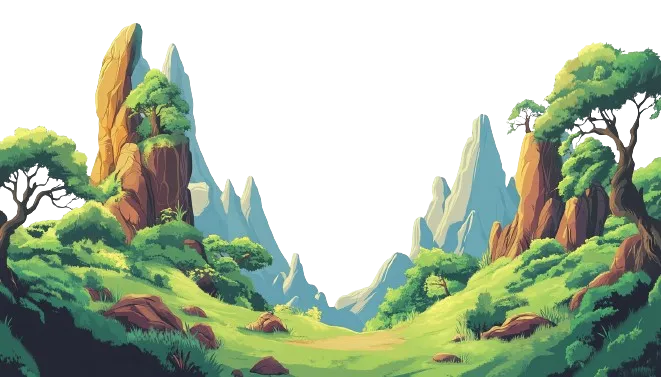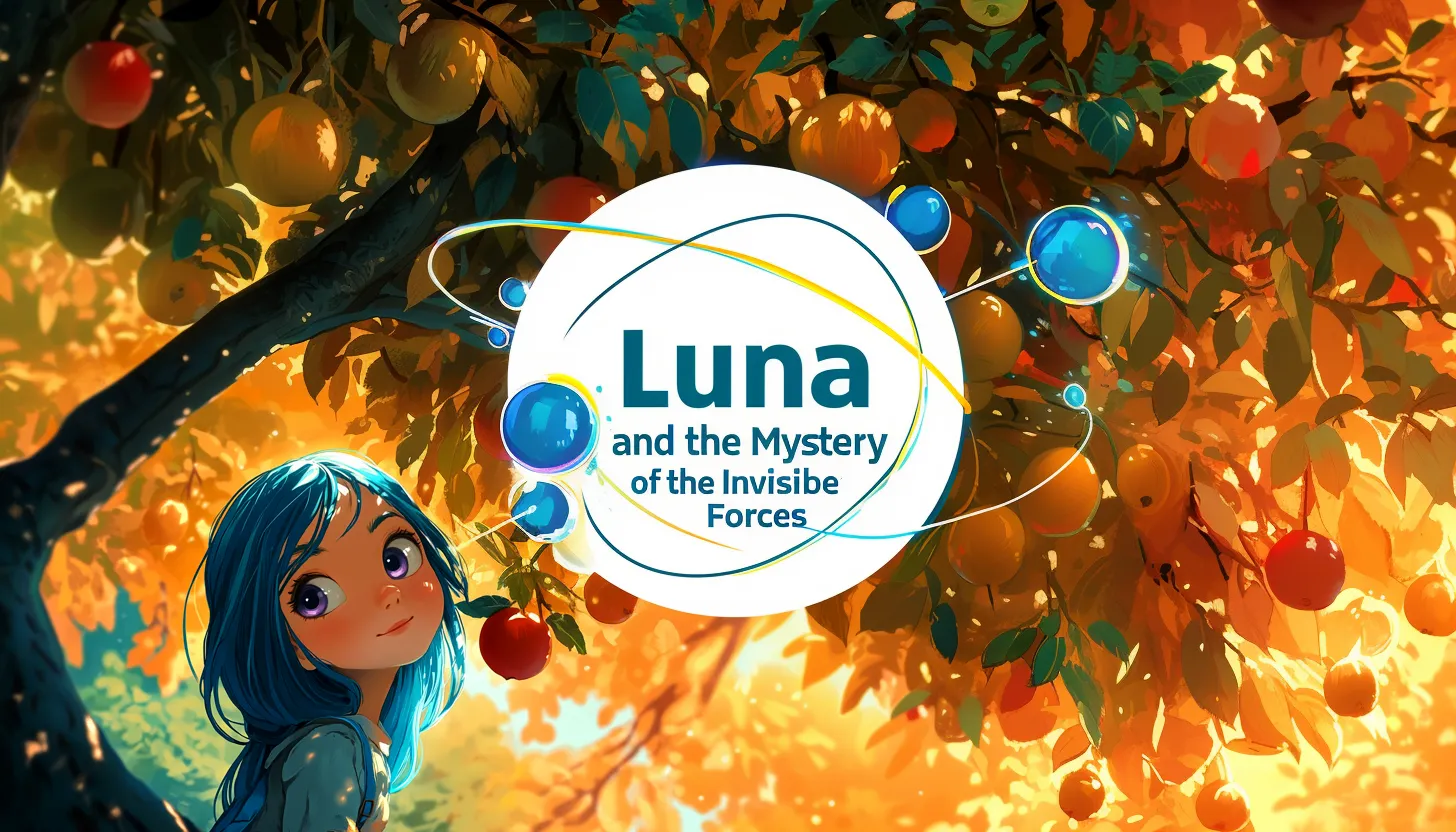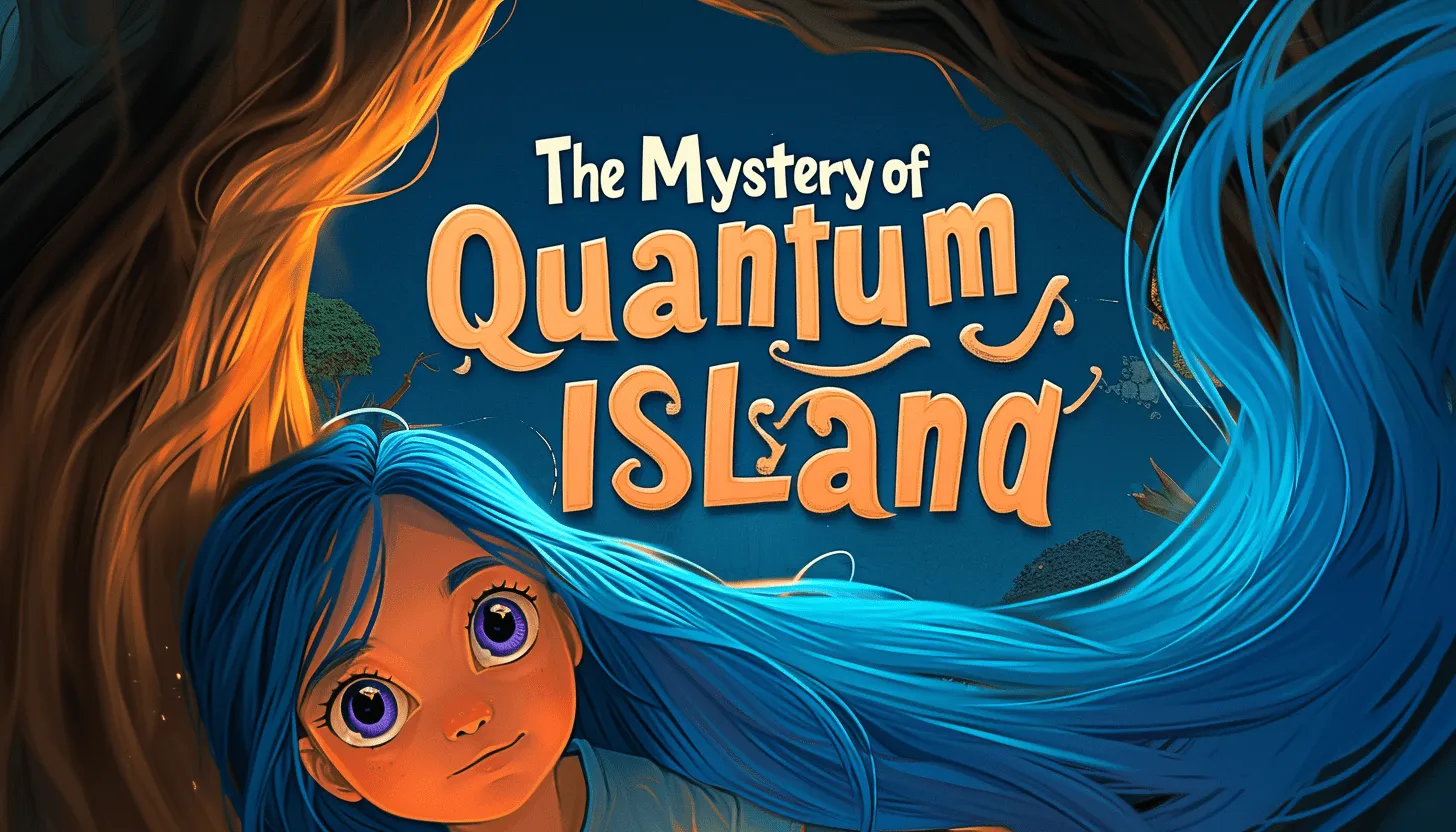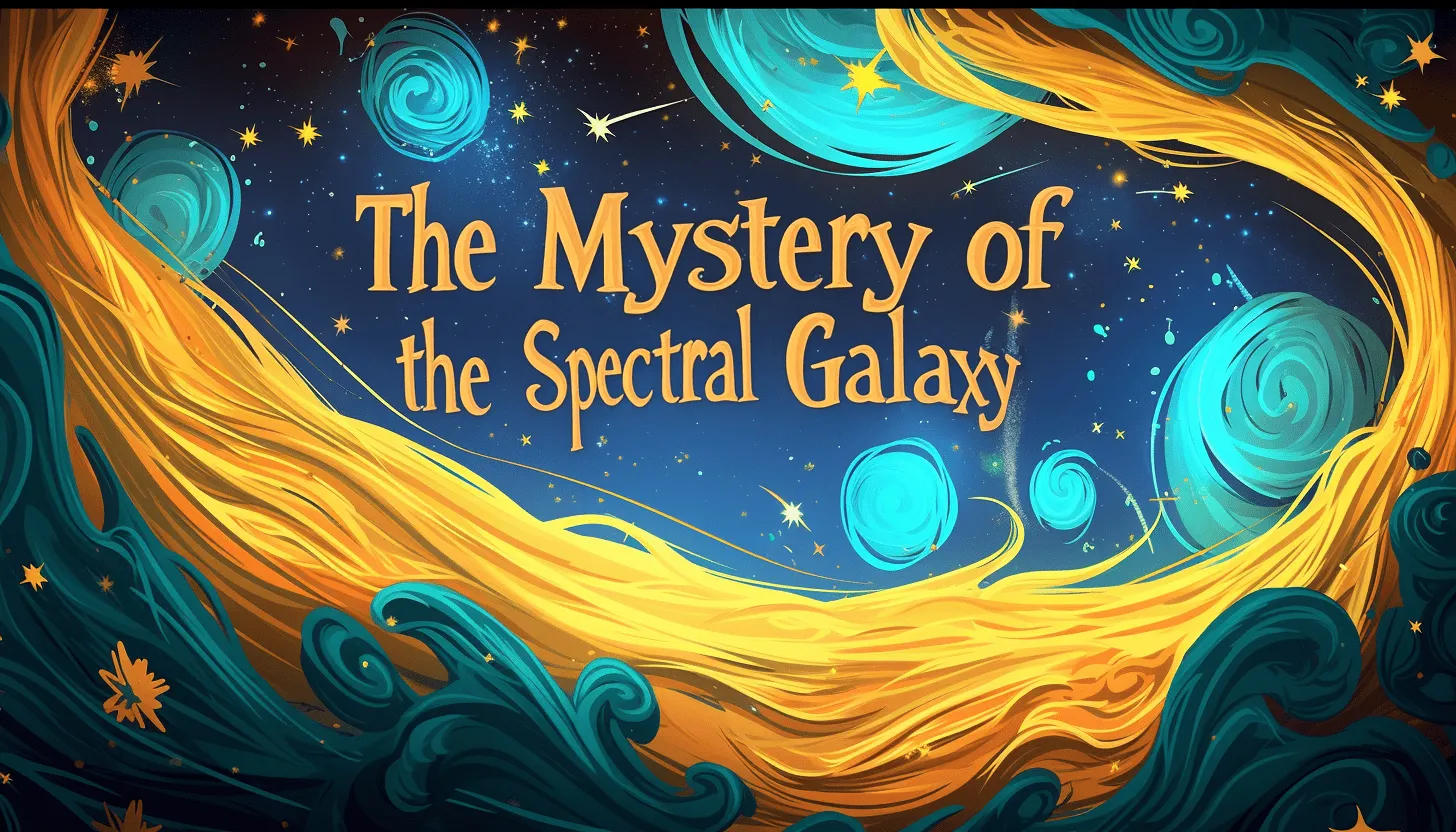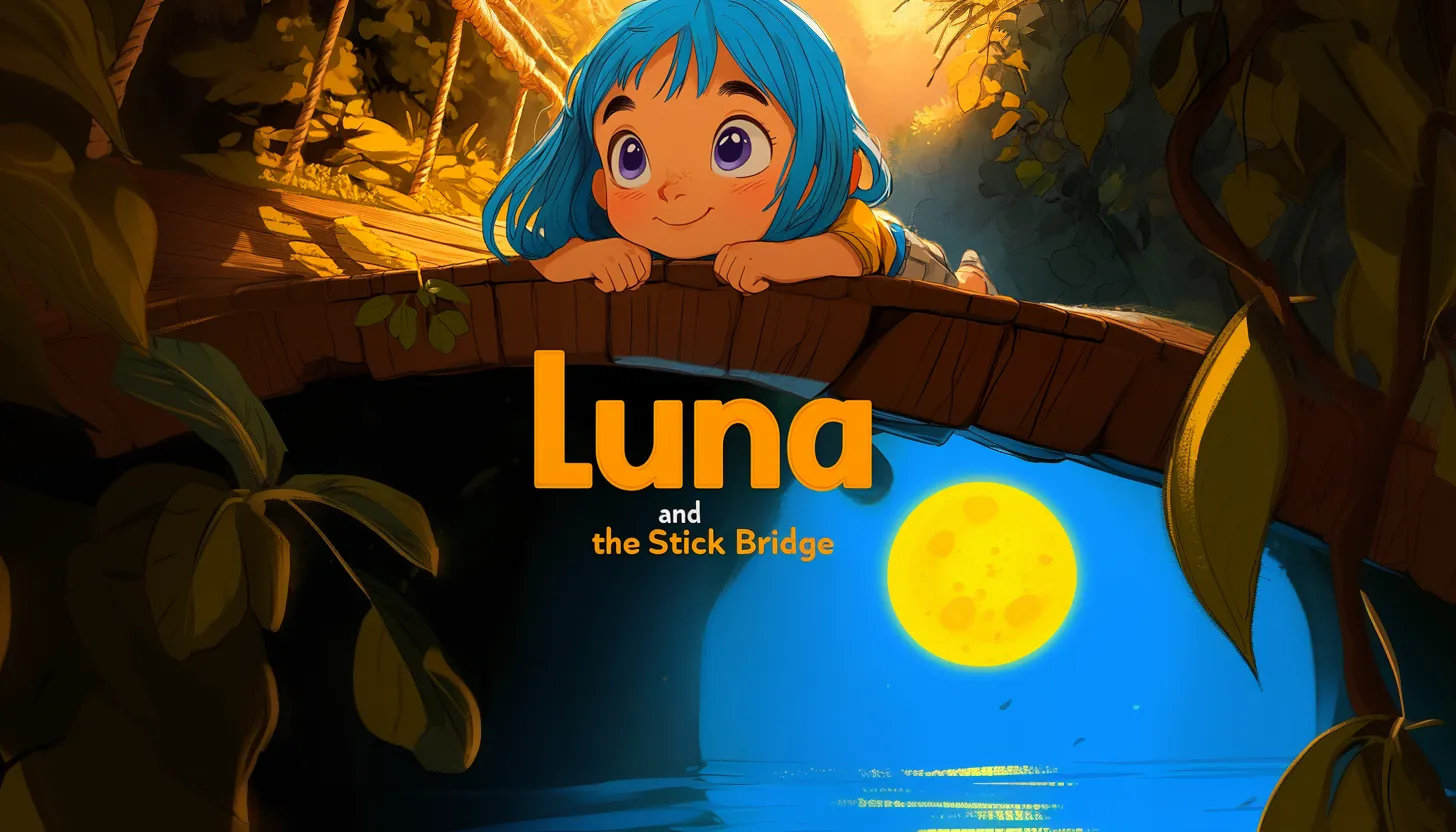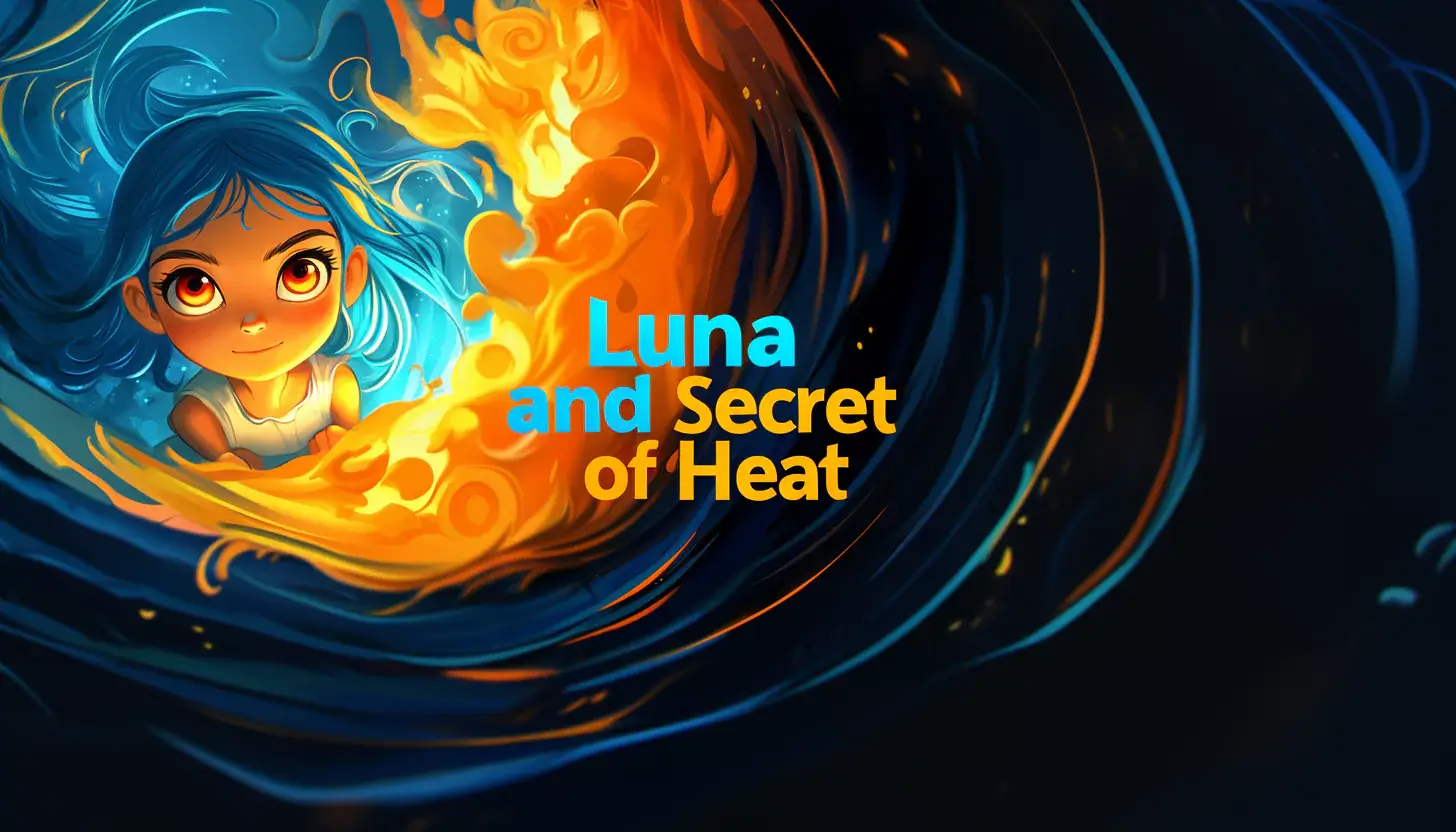In a small village, on the edge of a lush forest and under a sky always filled with stars, lived a girl named Luna. Luna was special, not just because of her name, but because she had a huge passion for the cosmos. Her dreams were as vast as the galaxies, and her curiosity was as infinite as space.
One clear and serene night, the whole village was preparing for the "Star Festival," an event held once a year when the sky lit up with thousands of shooting stars. Luna, with her deep blue hair shimmering under the moonlight, was more excited than ever. Her violet eyes sparkled with every flicker of curiosity.
"Look, Mom, there's the Dragon constellation!" Luna exclaimed, pointing at the sky while holding a big astronomy book. Her mother smiled, seeing the joy in her daughter's eyes.
"Yes, sweetheart. Have you ever wondered why the stars don’t fall from the sky?" her mother asked, gently stroking her hair.
Luna furrowed her brow, thinking. "Yes, Mom. I always wonder why everything stays in its place in space."
That night, after the festival, Luna couldn't sleep. She decided to take a walk in the nearby forest, where she often found answers to her questions in nature. The forest was wrapped in a soft silver light, and the trees whispered secrets with the wind.
As she walked, Luna came across a clearing where she used to play as a child. There, sitting on a log, was Professor Stephen, a retired astronomer who lived in the village. He was a kind and wise man, known for his stories about the universe.
"Good evening, Luna," said Professor Stephen with a smile. "What brings you here at this hour?"
Luna sat beside him, her eyes shining with curiosity. "Professor Stephen, can you tell me why the stars don’t fall from the sky and why everything in space stays in its place?"
Professor Stephen adjusted his glasses and began to explain. "Luna, that’s an excellent question. Everything in the universe is governed by an invisible force called gravity. Imagine you have a ball and you throw it into the air. What happens to the ball?"
"It comes back down," Luna replied.
"Exactly. That’s because the Earth has gravity, which pulls everything toward its center. Now, in space, all large objects, like planets, stars, and moons, also have gravity. This gravity is what keeps the Earth orbiting around the Sun and the Moon orbiting around the Earth."
Luna frowned, pondering what she had heard. "So, is gravity like a giant magnet that pulls everything toward the planets?"
"Yes, you could say it’s something like that," replied Professor Stephen. "But there’s more. When objects in space move very fast, instead of being pulled directly toward a planet or star, they start to orbit around it. It’s like when you tie a stone to a string and make it spin. The stone doesn’t fall because it’s in motion, just like the planets and stars."
Luna wanted to understand better, so Professor Stephen suggested a simple experiment. "Let’s do a little experiment," he said, pulling out a ball and a piece of string from his backpack.
The professor tied the string to the ball and began to spin it in circles. "Look, Luna, when I spin the ball, it stays in motion around my hand. If I stop spinning the string, the ball falls because gravity pulls it toward the Earth."
Luna watched closely. "So, the planets and stars are always in motion, and that’s why they don’t fall."
"Exactly," said Professor Stephen. "And the bigger the object, the stronger its gravity. That’s why Earth can keep us all glued to its surface, while the Moon’s gravity is weaker and doesn’t affect us as much."
After their conversation and experiments with Professor Stephen, Luna felt filled with new ideas and knowledge. She walked back home, looking at the stars with a new understanding.
When she got home, she lay in bed and closed her eyes, dreaming of planets, stars, and the invisible forces that keep everything in its place. She understood a little better about the universe and was more determined than ever to continue exploring and learning about the mysteries of the cosmos.
The next day, Luna couldn’t wait to share what she had learned with her friends at school. During recess, she gathered a group of children in the playground and began to explain to them about gravity and how it works.
"Did you know that the Earth keeps us all grounded thanks to gravity?" Luna said excitedly. "And that planets don’t fall because they are always moving around the Sun?"
Her friends listened intently, impressed by what Luna was telling them. Even the teacher, Mrs. Carmen, came over to listen.
"Luna, you’ve learned so much about gravity," said Mrs. Carmen. "Maybe you should give a presentation in class so everyone can understand better."
Luna nodded excitedly. She spent the next few days preparing a presentation with drawings, experiments, and simple explanations so her classmates could learn about gravity in a fun way.
Finally, the day of the presentation arrived. Luna stood in front of the class with her hair shining in the sunlight streaming through the window. With a smile, she began to explain what she had learned.
"Hello everyone. Today I’m going to talk about something really amazing: gravity," Luna started. "Gravity is an invisible force that pulls everything toward the center of the Earth. It’s the reason we don’t float in the air and why the stars don’t fall from the sky."
She used a ball and a string to show how planets orbit around the Sun and how gravity keeps everything in place. Her classmates watched fascinated, and many of them began to ask questions.
After her presentation, Luna felt proud and happy. She had shared her passion for the cosmos and had helped her friends understand the world around them better.


